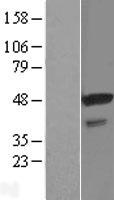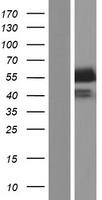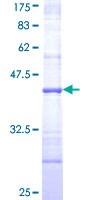order histories, retained contact details for faster checkout, review submissions, and special promotions.
Forgot password?
order histories, retained contact details for faster checkout, review submissions, and special promotions.
Locations
Orders Processing,
Shipping & Receiving,
Warehouse
2 Shaker Rd Suites
B001/B101
Shirley, MA 01464
Production Lab
Floor 6, Suite 620
20700 44th Avenue W
Lynnwood, WA 98036
Telephone Numbers
Tel: +1 (206) 374-1102
Fax: +1 (206) 577-4565
Contact Us
Additional Contact Details
order histories, retained contact details for faster checkout, review submissions, and special promotions.
Forgot password?
order histories, retained contact details for faster checkout, review submissions, and special promotions.
STAP2
signal transducing adaptor family member 2
STAP2 is the substrate of breast tumor kinase, an Src-type non-receptor tyrosine kinase. The encoded protein possesses domains and several tyrosine phosphorylation sites characteristic of adaptor proteins that mediate the interactions linking proteins involved in signal transduction pathways. Alternative splicing results in multiple transcript variants.
| Gene Name: | signal transducing adaptor family member 2 |
| Synonyms: | STAP2, BRK substrate, BKS, Brk kinase substrate, STAP-2, Breast tumor kinase substrate |
| Target Sequences: | NM_017720 NP_060190.2 Q9UGK3 |
Publications (4)





If you do not find the reagent or information you require, please contact Customer.Support@LSBio.com to inquire about additional products in development.









